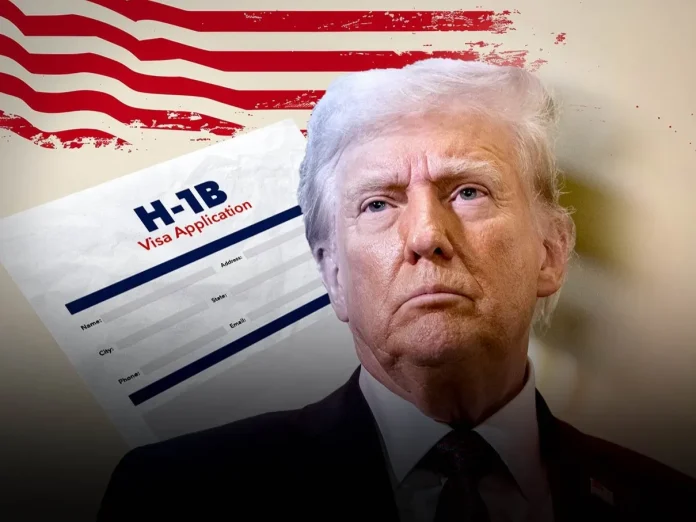In a move shaking up the global tech world, U.S. President Donald Trump has announced a massive increase in H-1B visa fees. The cost for companies to secure an H-1B worker will now rise to $100,000 per application.
This policy is already sparking strong reactions, especially from tech startups, global talent advocates, and large IT firms that rely heavily on skilled foreign workers.
Why the H-1B Visa Matters
The H-1B visa has long been a lifeline for the U.S. tech ecosystem. It allows companies to hire highly skilled foreign professionals in areas like:
- Software development
- Artificial intelligence
- Data science
- Engineering and research
For startups competing with tech giants like Google, Amazon, and Meta, the H-1B program was a chance to bring in world-class talent without breaking the bank.
The Impact of a $100,000 Fee
- Startups Under Pressure
Early-stage companies rarely have deep pockets. Paying $100K per hire could shut them out of the global talent pool. - Big Tech Advantage
Corporations with billions in revenue can absorb the costs, further widening the gap between tech giants and small innovators. - Shift in Global Talent Flow
Skilled workers may choose other tech hubs—like Canada, the U.K., or Singapore—where policies are friendlier and more affordable. - Possible Brain Drain
The U.S. risks losing its edge as a top destination for talent, which has historically fueled Silicon Valley’s rise.
Voices From the Industry
- Startups argue this is an innovation killer that makes hiring impossible.
- Immigrant advocates warn it sends a hostile message to global talent.
- Policy analysts say it could push investment and research outside the U.S.
What Happens Next?
- Lawsuits and challenges may follow, as major tech associations push back.
- Startups may begin offshoring operations to attract talent in countries with friendlier policies.
- Other governments may capitalize on this moment, rolling out red-carpet policies to attract skilled workers.
Final Thought
For decades, the U.S. has been the dream destination for tech talent. But with the new $100,000 H-1B visa fee, that dream is at risk of slipping away.
The question is: will this policy strengthen American jobs—or weaken America’s tech leadership in a world racing toward innovation?










